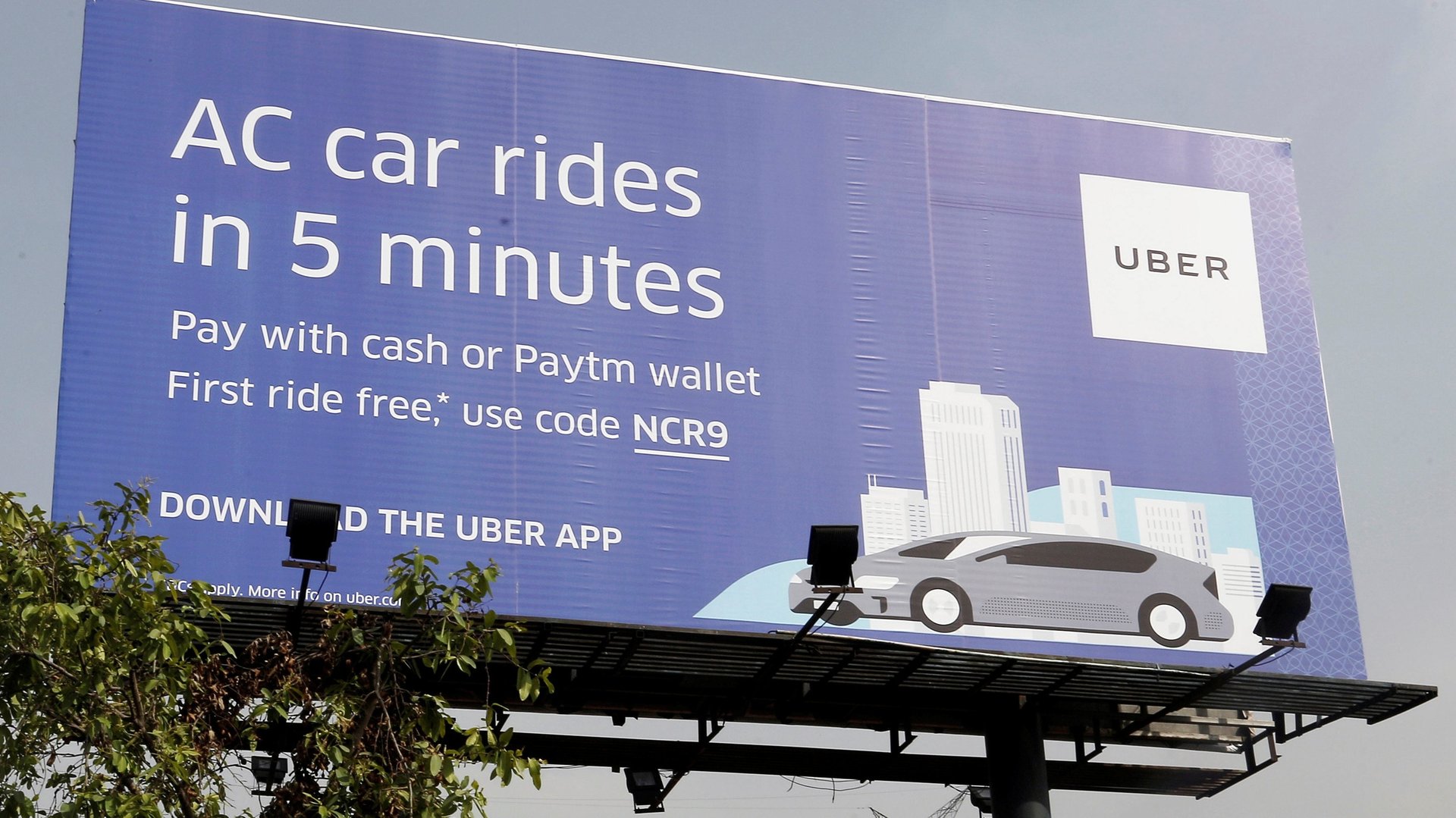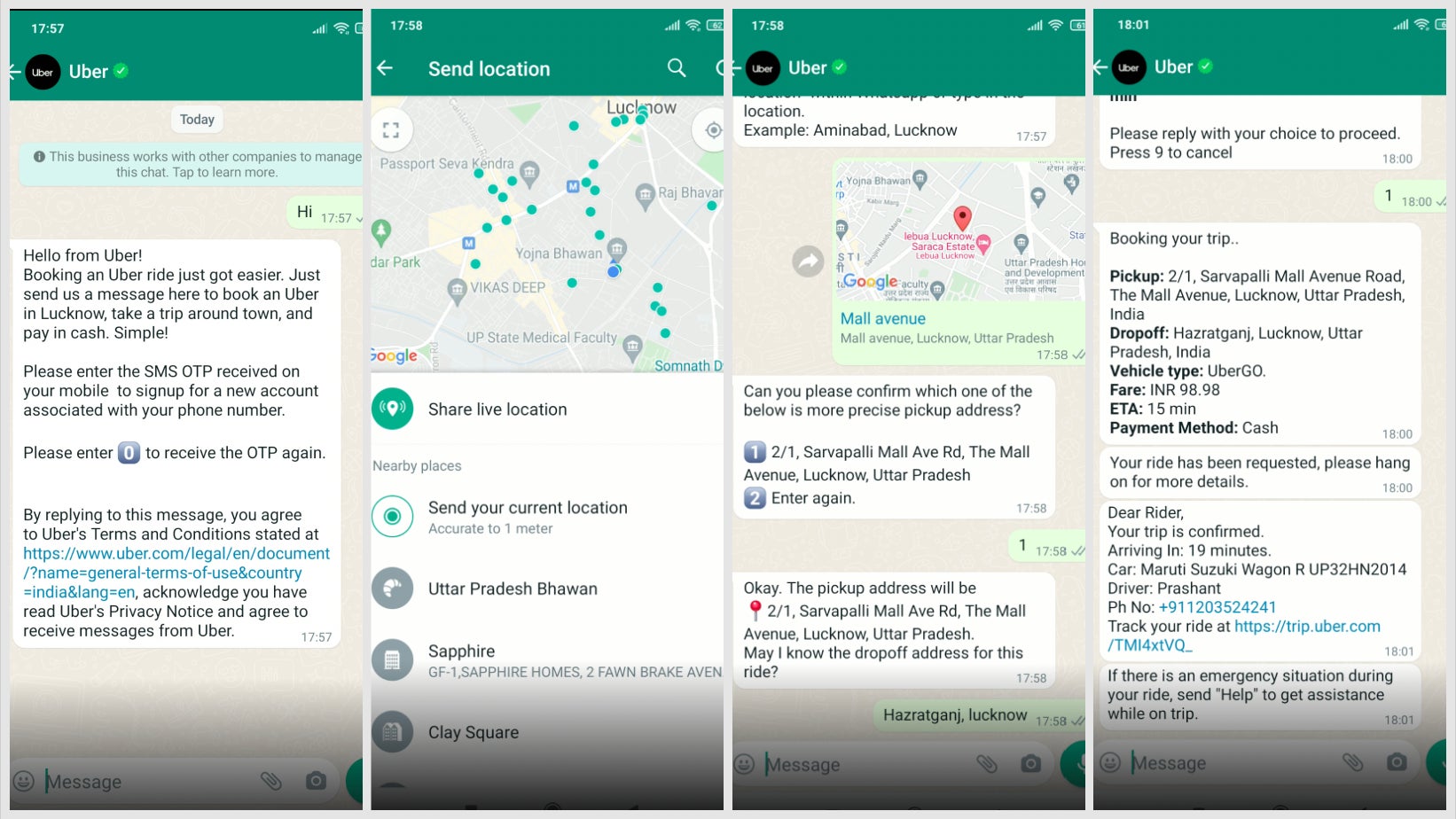Uber wants to meet Indians where they are—on WhatsApp
In a first, Uber is gearing up to ferry passengers who don’t have the Uber app downloaded.


In a first, Uber is gearing up to ferry passengers who don’t have the Uber app downloaded.
The San Francisco-based company has partnered with WhatsApp to allow Indians to book rides on the messaging app, it said in a Dec. 2 blogpost. “Everything from user registration, booking a ride, and getting a trip receipt will be managed within the WhatsApp chat interface,” the company said.
The integration, available to both existing and new customers, will be rolled out in Uttar Pradesh’s capital, Lucknow, this week. Soon, it’ll also be in New Delhi. By next year, the feature will be available across India. The companies did not disclose any financial details about the arrangement.
“We want to make it as easy as possible for all Indians to take an Uber trip, and to do that we need to meet them on platforms they are comfortable with,” said Nandini Maheshwari, an Uber regional executive.
The service will initially be available in English for now, but the two tech giants hope to add more languages. Meta-owned WhatsApp is available in 11 local languages in India.
How to book an Uber on WhatsApp
WhatsApp users will be able to book an Uber ride in three ways: messaging Uber’s business account number; scanning a QR code; or clicking a link directly to open an Uber WhatsApp chat. Once the rider provides their pickup and drop-off locations, users will receive fare estimates and the driver’s expected time of arrival.
Riders can pay with cash once the journey is done.

Like in the Uber app, various safety features are built into the WhatsApp ride-booking process, too. People can see the driver’s name and license plate number, track the car’s location, and speak to the driver anonymously via a masked number.
There’s also an emergency option—texting “help”—that will trigger an inbound call from Uber’s customer support team. The safety line will be available for 30 mins after the trip ends.
Is this Uber’s attempt to beat Ola?
By joining Meta, Uber is dramatically increasing its pool of potential clients. WhatsApp has more than 500 million users in India—five times more than Uber had worldwide in 2020.
The partnership could give Uber an edge in India’s taxi wars. India’s ride-hailing market is a duopoly, but homegrown rival Ola’s net is cast wider than its American counterpart’s. Uber, which is in 100 Indian cities, still trails Ola’s presence in 160.
The WhatsApp integration will help Uber get more business beyond big metro areas, according to Karan Taurani, senior vice-president at Elara Capital. “There’s nothing better than WhatsApp” to attract customers in small-town India, he says. Other companies, including Reliance-owned JioMart, are trying to piggyback on WhatsApp infrastructure, too. The grocery delivery company recently started letting users place orders via WhatsApp.
Doubling down on the taxi wars might be Uber’s best chance to get ahead in India. Its other experiments have been underwhelming, including UberEats, which the company sold to Zomato last year.